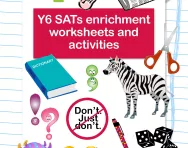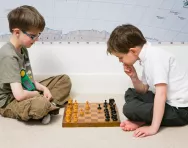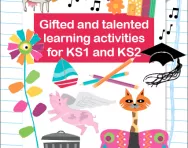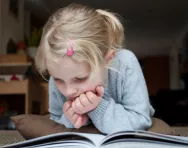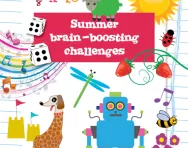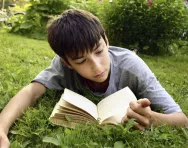Important update from TheSchoolRun
For the past 13 years, TheSchoolRun has been run by a small team of mums working from home, dedicated to providing quality educational resources to primary school parents. Unfortunately, rising supplier costs and falling revenue have made it impossible for us to continue operating, and we’ve had to make the difficult decision to close. The good news: We’ve arranged for another educational provider to take over many of our resources. These will be hosted on a new portal, where the content will be updated and expanded to support your child’s learning.
What this means for subscribers:
- Your subscription is still active, and for now, you can keep using the website as normal — just log in with your usual details to access all our articles and resources*.
- In a few months, all resources will move to the new portal. You’ll continue to have access there until your subscription ends. We’ll send you full details nearer the time.
- As a thank you for your support, we’ll also be sending you 16 primary school eBooks (worth £108.84) to download and keep.
A few changes to be aware of:
- The Learning Journey weekly email has ended, but your child’s plan will still be updated on your dashboard each Monday. Just log in to see the recommended worksheets.
- The 11+ weekly emails have now ended. We sent you all the remaining emails in the series at the end of March — please check your inbox (and spam folder) if you haven’t seen them. You can also follow the full programme here: 11+ Learning Journey.
If you have any questions, please contact us at [email protected]. Thank you for being part of our journey it’s been a privilege to support your family’s learning.
*If you need to reset your password, it will still work as usual. Please check your spam folder if the reset email doesn’t appear in your inbox.
What is enrichment?

When you look back at your schooldays, what do you remember most fondly? Mastering times tables or tricky spellings – or school trips, sports days and after-school clubs?
Activities like this are known as enrichment, and are an important part of your child’s education, giving them new experiences, extending their learning, and making school life more fun.
‘Enrichment basically makes a subject more meaningful or more rewarding,’ says Julie Taplin, Chief Executive of Potential Plus UK, the charity that supports children with high learning potential.
All children benefit from enrichment, but especially more able pupils. ‘It allows them to look at subjects in more depth, and give them opportunities to explore and use their imagination,’ Julie explains.
Children from disadvantaged backgrounds also benefit from experiences and activities that they may not get out of school.
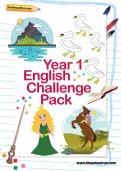
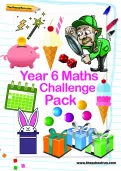
Is your child ready to be stretched?
- Download Challenge Packs for your child
- Maths & English packs for each school year
- Encourage your child to work at a greater depth
Why enrichment matters
Enrichment may be exciting for kids, but it’s not just about sacking off lessons and having fun.
It helps provide children with a rounded, culturally rich education through activities that enhance their learning.
Enrichment gives children opportunities to try new and varied activities that may not strictly fit into the curriculum, but that develop character, resilience and motivation, and encourage them to pursue wider goals.
It helps to teach life skills that benefit children beyond the classroom, and can develop an appreciation for cultural and community issues, teamwork and social responsibility.
Research by the Education Endowment Foundation has also found a link between enrichment and higher attainment in reading and maths.
Enrichment in schools
Although there’s no statutory requirement for schools to provide enrichment opportunities, it’s encouraged by the Department for Education (DfE) and Ofsted.
Ofsted’s inspection framework emphasises the importance of personal development and extending the curriculum beyond academic achievement.
It assesses schools on whether they:
- Help children develop their interests and talents
- Enable children to develop their character, including resilience, confidence and independence
- Teach children how to keep physically and mentally healthy
- Prepare them for future success
- Equip children to be responsible, respectful and active citizens
Some of this is covered in the National Curriculum, but a lot of it falls under the banner of enrichment.
Enrichment in the classroom
Enrichment in schools takes many forms. One important aim is to take the basic curriculum subjects and expand them, looking at them in more depth or from a different perspective – something that benefits more able children, in particular.
‘Most schools will offer stretch and challenge activities within lessons, in teacher-set tasks and extension work,’ explains Robert Massey, teacher and author of From Able to Remarkable (Crown House).
‘This will aim to offer breadth and depth of learning, rather than “more of the same”: in other words, rewarding a pupil who finishes a worksheet with another one!’
Examples of how schools might provide enrichment within the daily timetable include:
- Encouraging children to do further research into a subject, for example by using books and websites, compiling presentations, or making posters
- Setting tiered activities that take into account the different abilities within the class and allow more able students to work at a higher or wider level
- Enabling small groups to work with a teacher or teaching assistant to explore a subject in greater depth – also known as an ‘enrichment cluster’
- Helping children develop social and interpersonal skills through activities such as circle time and debates
- Applying learning and knowledge across the curriculum: for example, if a child is learning about the Great Fire of London as a history topic, it could be extended to include science (what do fires need to burn, and how does that explain why it spread so rapidly?) or English (writing a diary entry from the perspective of a Londoner at the time of the fire)
- Passing on their skills and knowledge to younger children, such as by being a reading buddy
‘Of course, schools are subject to staffing and budgetary constraints, but many are sympathetic to reasonable parental requests to address the needs of a particular pupil or group of pupils,’ says Robert.
Enrichment outside the classroom
Much enrichment takes place outside the classroom or the timetable of the normal school day.
‘Enrichment clubs and activities can take many forms, and can enhance social and teamwork skills,’ Robert explains.
Enrichment opportunities in primary schools include:
- Lunchtime and after-school clubs like chess, computing, art or sport
- Music lessons (usually paid for by parents) and opportunities to use musical talents, for example in choirs, bands or orchestra – both practising and performing
- School plays, shows, assemblies and sports day
- School trips and residential visits
- Forest school and other outdoor learning opportunities
- Whole-school events like World Book Day and Take One Picture
- Supporting charities through activities like copper collections or food bank collections
- Working on a school newspaper, radio show or podcast
- Bikeability or scooter training
- Visiting speakers, for example authors, local figures or parents who have skills or expertise to share (e.g. a firefighter or vet)
- Local or national challenges like chess, maths or engineering competitions
- Being active in the local community, such as through litter picks, river surveys, or carol singing in elderly care homes
These are just a few of the many diverse enrichment activities that schools might use.
The DfE has also introduced an Activity Passport: a list of suggested enrichment activities for pupils under 11 to take part in, such as going for a nature walk or visiting a local landmark.
These have been distributed to primary schools, although there’s no obligation for schools to use them.
Bear in mind that schools can ask parents for contributions to enrichment activities, such as paying for school trips.
Enrichment at home
You probably already do a lot of enrichment at home without really realising.
Reading together, roleplay games, board games, singing, dancing, cooking, gardening, painting and drawing all count.
Family visits to art galleries, zoos and museums will add depth to your child’s knowledge. There are also structured activities that your child can take part in, such as music or swimming lessons, Brownies or Cubs, or being part of a sports team.
Look out for learning activities and competitions that your child can get involved with. The Summer Reading Challenge runs annually in libraries to encourage kids to read for pleasure, and there are lots of other opportunities to learn while having fun, such as applying for a Blue Peter badge or entering a writing competition like 500 Words.
Helping your child to find answers to their many questions is also a form of enrichment. If you aren’t able to give them an answer help them to find someone or somewhere that can. Perhaps a family friend, the local library or the internet might be able to satisfy their curiosity. The idea is to help them build up their bank of resources for the future to help them continue expanding their knowledge.
If you have a more able child, charities and organisations such as Mensa and Potential Plus UK often offer enrichment activity days and events throughout school holidays; these are a great way for children to meet with other gifted kids and learn from each other.
TheSchoolRun's Gifted and talented: learning activities for KS1 and KS2 pack for subscribers offers 30 absorbing, fun projects to try out at home.
